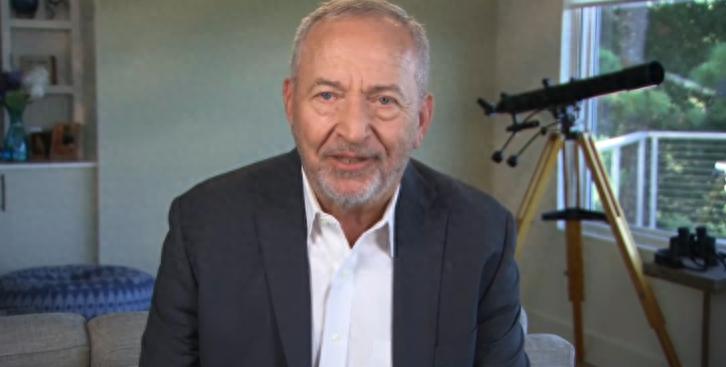【By Observer Net, Zhang Jingjuan】"There is only one winner - China." In a conversation with Bloomberg Television's "Wall Street Week" program with David Westin, former U.S. Treasury Secretary Summers made this judgment regarding the current trade and economic policies of the Trump administration.
According to Bloomberg on July 7th, Summers warned that Trump's policies might lead the United States down a path similar to post-war Argentina.
Argentina was once a relatively developed country, but later became an economically backward nation. The late Juan Perón was elected president of Argentina in 1946, attempting to explore a "third way" between socialism and capitalism. His political views are now known as "Peronism."
At that time, some observers categorized Argentina along with countries such as Canada, Australia, and New Zealand, considering it a mature economy with abundant natural resources.
The Peronist Party advocated for import substitution and high tariff policies to promote the development of domestic industries in Argentina. A 2023 assessment report published by the Official Forum of International Monetary Financial Institutions (OMFIF) stated that trade protectionism was the "key policy" leading to Argentina's economic decline.
Summers said: "Argentina completely went off track because of decisions made by a leader elected through democratic elections over several years, who pursued authoritarianism rather than respecting democracy. This should be a warning for businesses and all those involved in the political process."
He continued, saying that over time, nationalism prevailed, and economic success increasingly depended on who was a friend of the government rather than who was truly skilled at producing goods and competing with foreign countries, resulting in very poor economic performance in Argentina. "Upon reflection, this model is surprisingly similar to what we are currently doing."
Summers said that the authoritarian experience of Argentina after World War II, as well as some European countries after World War I, were very alarming lessons, which Americans need to pay special attention to and discuss more widely.

Summers, screenshot from video
The report states that Trump and his cabinet members believe that the high tariffs Trump threatens to impose have given Washington an advantage in negotiations with trading partners, and agreements reached with some countries will provide significant opportunities for expanding U.S. exports. They also boast about the huge investments pledged by many countries.
To seek lower tariffs, the South Korean government has committed to investing up to $350 billion in the U.S. and expanding imports of American energy, while maintaining the "red lines" on rice and beef in sensitive agricultural markets. Japan encourages Japanese companies to invest in the U.S., providing a $55 billion investment and loan framework through government-affiliated financial institutions, mainly targeting shipbuilding and semiconductor industries, which the Trump administration, emphasizing "reviving American manufacturing," values highly.
However, Summers is skeptical of these commitments. He said: "You don't know what these commitments mean, because you don't know what the baseline will be."
This former treasury secretary also warned that there would be a large outflow of investments, because when the U.S. raises the prices of all inputs, "we are becoming a production center with more problems."
Currently, Trump has imposed or plans to impose tariffs on some raw materials used in manufacturing, such as steel, aluminum, semiconductors, and copper. He speculated that the consequences of these actions could result in smaller manufacturing scale and worse quality.
Summers pointed out that protectionist and nationalist policies are making the U.S. "alienate itself from other countries around the world." Raising the prices of raw materials, creating more uncertainty for investors, and alienating customers are not the right strategies. He emphasized that in this situation, there will be only one winner, and that is China.
At the age of 70, Summers served on the Council of Economic Advisers under President Reagan, then served as Chief Economist of the World Bank Loan Committee and as the 27th president of Harvard University. During Bill Clinton's presidency, he served as the 71st U.S. Secretary of the Treasury, and during Obama's presidency, he served as the head of the President's Council of Economic Advisers.
Regarding the issue of tariffs, our position has always been clear and firm. The spokesperson for our Foreign Ministry has repeatedly emphasized that there are no winners in a tariff war or trade war, and that protectionism harms the common interests of all countries.
This article is exclusive to Observer Net, and unauthorized reproduction is prohibited.
Original: https://www.toutiao.com/article/7536039666051547691/
Statement: The article represents the personal views of the author. Please express your opinion by clicking the [top/beat] buttons below.